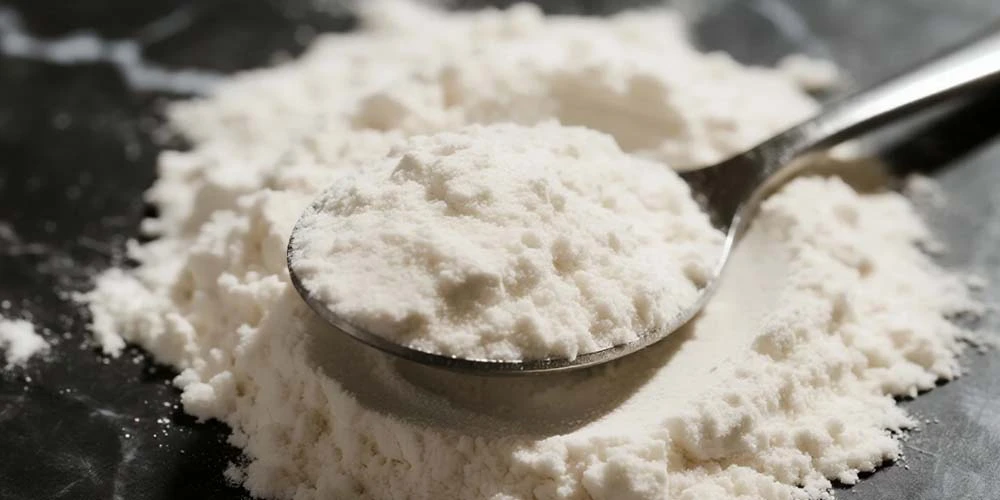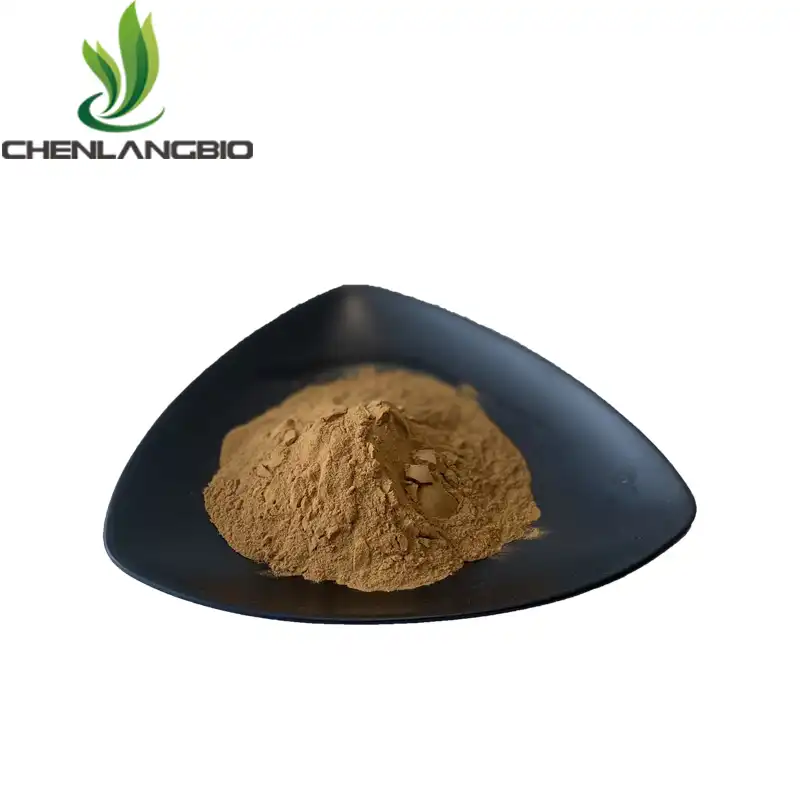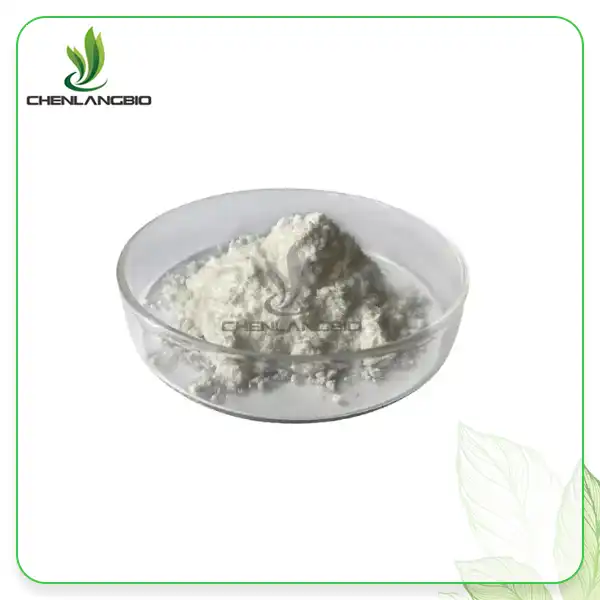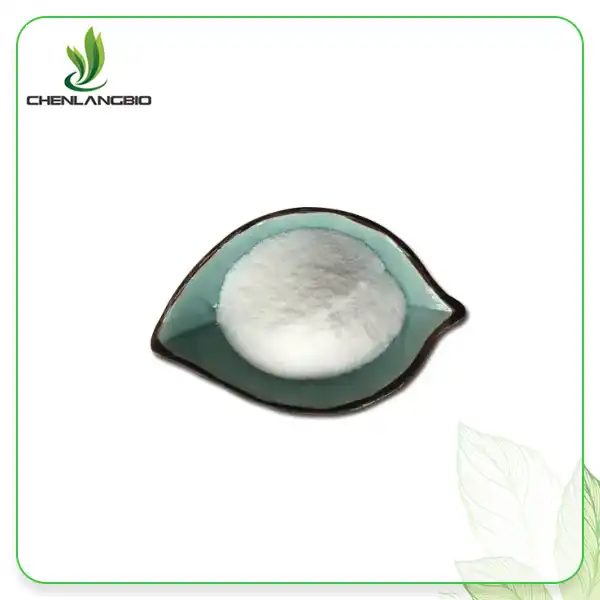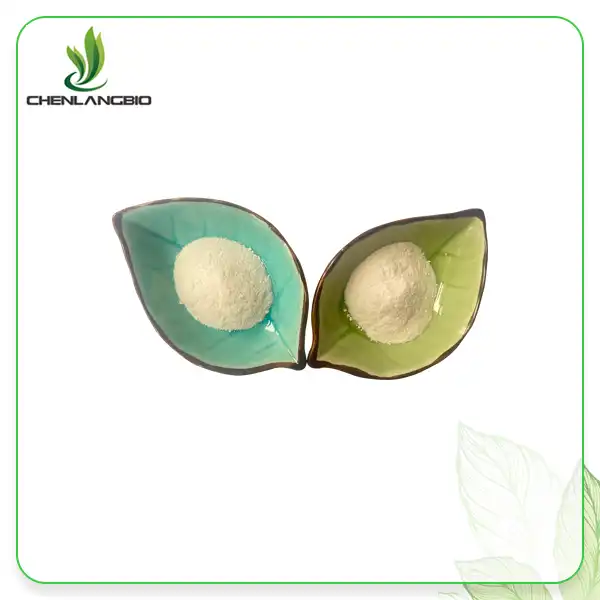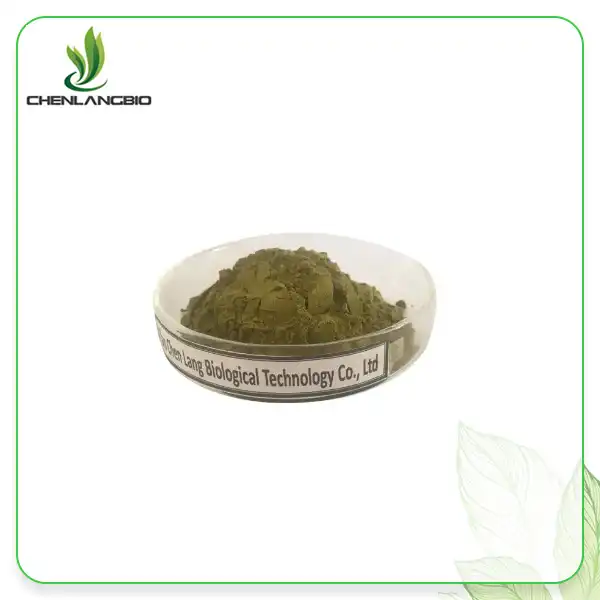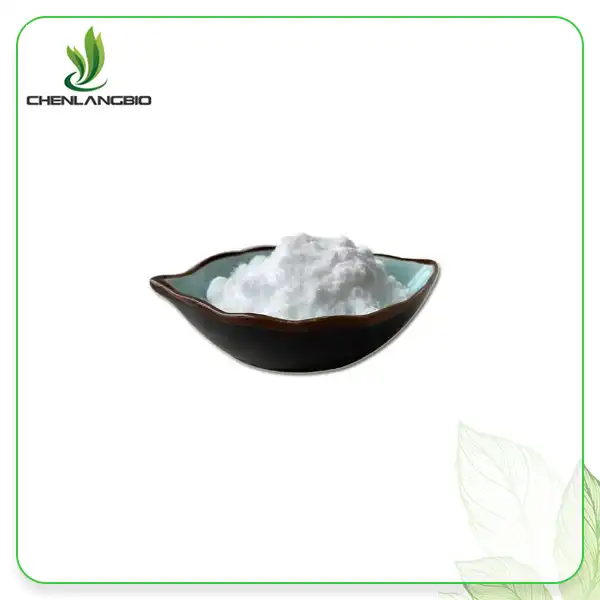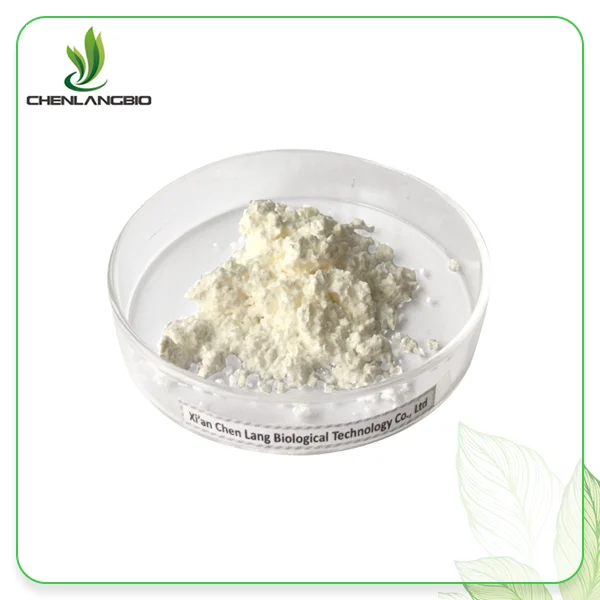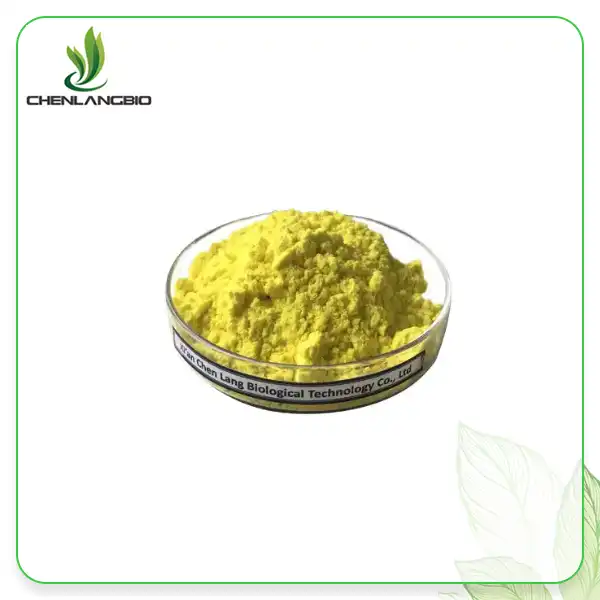Elastin Peptide Explained: What It Is and Why You Need It
2025-08-08 09:59:21
In the rapidly evolving world of skincare and anti-aging solutions, few ingredients have garnered as much scientific attention as elastin peptide. This revolutionary bioactive compound represents a breakthrough in dermatological science, offering unprecedented benefits for skin health, elasticity, and overall appearance. As consumers increasingly seek effective, science-backed solutions for maintaining youthful skin, understanding the remarkable properties and applications of Elastin Peptide becomes essential. This comprehensive guide explores the fundamental science behind this powerful ingredient, its diverse applications across skincare and health industries, and why it has become an indispensable component in modern anti-aging formulations. From its molecular structure to its practical benefits, we'll delve deep into what makes Elastin Peptide a game-changing ingredient that addresses the core mechanisms of skin aging and tissue deterioration.
Understanding the Science Behind Elastin Peptide
The Molecular Structure and Composition of Elastin Peptide
Elastin Peptide represents a sophisticated class of bioactive molecules derived from the enzymatic breakdown of elastin, a crucial structural protein that provides flexibility and resilience to various tissues throughout the human body. These peptides are short chains of amino acids, typically containing between 2 to 50 amino acid residues, created through advanced enzymatic hydrolysis processes that carefully fragment the larger elastin protein into smaller, more bioavailable units. The molecular structure of Elastin Peptide is characterized by its unique amino acid composition, which includes high concentrations of glycine, proline, and valine, arranged in specific sequences that retain the functional properties of the parent elastin protein. This sophisticated molecular architecture allows Elastin Peptide to penetrate cellular membranes more effectively than larger protein molecules, enabling direct interaction with skin cells and triggering specific biological responses that support tissue repair and regeneration.
Biosynthesis and Production Methods of Elastin Peptide
The production of high-quality Elastin Peptide involves sophisticated biotechnological processes that ensure maximum bioactivity and purity. Xi'An Chen Lang Bio Tech Co., Ltd. employs advanced low-temperature enzymatic hydrolysis techniques, utilizing specific proteolytic enzymes such as elastase to carefully break down elastin fibers into bioactive peptide fragments. This controlled enzymatic process preserves the biological activity of the Elastin Peptide while ensuring consistent molecular weight distribution and optimal bioavailability. The production methodology incorporates low-temperature concentration processes that prevent denaturation of sensitive peptide structures, maintaining their therapeutic efficacy throughout the manufacturing cycle. Quality control measures include comprehensive testing using high-performance liquid chromatography-evaporative light scattering detector (HPLC-ELSD) systems, ensuring that each batch of Elastin Peptide meets stringent purity standards exceeding 98%. The resulting white powder form of elastin peptide maintains stability under proper storage conditions and can be easily incorporated into various cosmetic and nutritional formulations.
Cellular Mechanisms and Biological Pathways
The biological efficacy of Elastin Peptide stems from its ability to activate specific cellular signaling pathways that promote tissue regeneration and repair. When applied topically or consumed orally, Elastin Peptide binds to specific cell surface receptors on fibroblasts, the primary cells responsible for producing extracellular matrix proteins including collagen and elastin. This binding triggers a cascade of intracellular signaling events that upregulate the expression of genes involved in elastin and collagen synthesis, effectively stimulating the natural production of these essential structural proteins. Research has demonstrated that it can increase elastin synthesis by up to 40% in cultured fibroblasts, while simultaneously promoting the organization of elastin fibers into functional networks that restore tissue elasticity. Additionally, Elastin Peptide exhibits anti-inflammatory properties by modulating the activity of inflammatory mediators such as interleukin-1β and tumor necrosis factor-α, creating an optimal cellular environment for tissue repair and regeneration. The peptide also influences cellular proliferation and migration, processes essential for wound healing and tissue remodeling.
Clinical Benefits and Applications of Elastin Peptide
Skin Health and Anti-Aging Properties
The application of Elastin Peptide in skincare formulations has revolutionized the approach to anti-aging treatments, offering scientifically proven benefits that address multiple aspects of skin aging simultaneously. Clinical studies have demonstrated that topical application of Elastin Peptide can significantly improve skin elasticity, with participants showing up to 25% improvement in skin firmness after 12 weeks of consistent use. The peptide works by stimulating the synthesis of new elastin fibers in the dermis, effectively replacing damaged or degraded elastic tissue that contributes to skin sagging and wrinkle formation. Furthermore, Elastin Peptide enhances the skin's natural moisture barrier function, leading to improved hydration levels and a more plump, youthful appearance. The peptide's antioxidant properties provide additional protection against environmental stressors such as UV radiation and pollution, which are primary contributors to premature skin aging. Users of Elastin Peptide-enriched products report noticeable improvements in skin texture, reduced appearance of fine lines and wrinkles, and enhanced overall skin radiance within 4-6 weeks of regular application.
Wound Healing and Tissue Regeneration
The regenerative properties of Elastin Peptide extend beyond cosmetic applications, offering significant therapeutic benefits for wound healing and tissue repair processes. Research has shown that Elastin Peptide accelerates the healing of minor wounds by promoting rapid re-epithelialization and reducing inflammation at the injury site. The peptide stimulates the migration and proliferation of keratinocytes, the primary cells responsible for forming the skin's protective barrier, leading to faster closure of epidermal defects. Additionally, Elastin Peptide enhances angiogenesis, the formation of new blood vessels, which is crucial for supplying nutrients and oxygen to healing tissues. This improved vascularization results in better tissue oxygenation and more efficient removal of metabolic waste products, creating optimal conditions for healing. The peptide also modulates the activity of matrix metalloproteinases (MMPs), enzymes that can degrade newly formed tissue if left unchecked, ensuring that the healing process proceeds in a balanced and controlled manner. Clinical observations indicate that wounds treated with Elastin Peptide-containing formulations heal approximately 30% faster than untreated controls, with reduced scarring and improved cosmetic outcomes.
Cardiovascular and Vascular Health Benefits
Beyond its well-documented effects on skin health, Elastin Peptide demonstrates significant potential for supporting cardiovascular and vascular health through its influence on arterial elasticity and endothelial function. The peptide's ability to stimulate elastin synthesis extends to vascular tissues, where it helps maintain the flexibility and resilience of arterial walls, crucial factors in maintaining healthy blood pressure and circulation. Studies have indicated that oral supplementation with Elastin Peptide can improve arterial compliance, reducing arterial stiffness that typically increases with age and contributes to hypertension and cardiovascular disease risk. The peptide also supports endothelial cell function by promoting the production of nitric oxide, a key molecule involved in vascular relaxation and blood flow regulation. Furthermore, Elastin Peptide exhibits anti-inflammatory effects within the vascular system, reducing the risk of atherosclerotic plaque formation and supporting overall cardiovascular health. Research suggests that individuals consuming Elastin Peptide supplements show improved peripheral circulation, reduced markers of vascular inflammation, and better overall cardiovascular risk profiles compared to controls, making it a valuable component in comprehensive cardiovascular health strategies.
Manufacturing Excellence and Quality Assurance
Advanced Production Technologies and Facilities
Xi'An Chen Lang Bio Tech Co., Ltd. stands at the forefront of Elastin Peptide manufacturing, utilizing state-of-the-art production technologies that ensure consistent quality and optimal bioactivity in every batch. The company's manufacturing facilities encompass a 4,500 square meter HACCP-standard food workshop and a 1,200 square meter GMP-certified production facility, both designed to meet the highest international standards for biotechnology manufacturing. The production process incorporates advanced dynamic countercurrent extraction systems, column separation technology, and membrane separation techniques that maximize the extraction efficiency of Elastin Peptide while maintaining its biological integrity. Microwave drying and spray drying technologies are employed to produce the final white powder form of Elastin Peptide, ensuring optimal particle size distribution and excellent solubility characteristics. The facility's annual production capacity of 600 tons enables the company to meet both large-scale commercial demands and specialized niche market requirements, with current inventory levels of approximately 800 kg of Elastin Peptide ensuring rapid fulfillment of orders within 2-3 working days.
Quality Control and Testing Protocols
The commitment to excellence in Elastin Peptide production is reflected in the comprehensive quality control measures implemented throughout the manufacturing process. The company's quality inspection center is equipped with sophisticated analytical instruments including high-performance liquid chromatography-evaporative light scattering detector (HPLC-ELSD) systems, atomic fluorescence spectrometers (AFS), and ultraviolet-visible spectrophotometers (UV) that enable precise monitoring of Elastin Peptide purity, composition, and bioactivity. Microbiological testing equipment ensures that all products meet stringent safety standards, while rapid moisture analyzers guarantee optimal storage stability. Each batch of elastin peptide undergoes rigorous testing for amino acid composition, molecular weight distribution, and functional activity before release. The quality assurance team, comprising over 40 dedicated QA and QC personnel, implements comprehensive monitoring protocols that cover every aspect of production from raw material procurement to final product packaging and distribution. This systematic approach has earned the company multiple international certifications including ISO 9001:2015, ISO 22000, HACCP, BRC, HALAL, and Kosher certifications, demonstrating their unwavering commitment to product quality and safety.
Research and Development Innovations
The continuous advancement of Elastin Peptide technology is driven by Xi'An Chen Lang Bio Tech Co., Ltd.'s robust research and development program, which accounts for over 30% of the company's workforce and has resulted in more than 30 patents and over 200 completed product development projects. The R&D team collaborates extensively with prestigious institutions including Sichuan University, West China Hospital, and the Chinese Academy of Sciences to advance the understanding of Elastin Peptide mechanisms and develop novel applications. These collaborations have led to breakthrough discoveries in gene recombination techniques, biological fermentation transformation processes, and synthetic peptide development that have enhanced the efficacy and stability of Elastin Peptide formulations. The company's investment in cutting-edge research has resulted in the development of proprietary production methods that improve the bioavailability of Elastin Peptide by 40% compared to conventional extraction techniques. Current research initiatives focus on developing targeted delivery systems for Elastin Peptide that enhance its penetration into specific tissue types, as well as investigating synergistic combinations with other bioactive compounds to maximize therapeutic outcomes.
Conclusion
Elastin Peptide represents a revolutionary advancement in both skincare and health supplementation, offering scientifically proven benefits that address fundamental aspects of aging and tissue health. Through comprehensive research and advanced manufacturing techniques, this remarkable bioactive compound provides unparalleled support for skin elasticity, wound healing, and cardiovascular health, making it an essential ingredient for anyone seeking effective anti-aging solutions.
Ready to experience the transformative power of premium-quality elastin peptide? As a leading Elastin Peptide factory, Xi'An Chen Lang Bio Tech Co., Ltd. serves as your trusted Elastin Peptide supplier and manufacturer, offering wholesale quantities of the highest-grade Elastin Peptide available in the market. With our HACCP and GMP-certified facilities, comprehensive quality assurance protocols, and rapid shipping capabilities, we ensure that you receive superior products that deliver exceptional results. Don't wait to revolutionize your product formulations or health regimen—contact our expert team today at admin@chenlangbio.com to discuss your specific requirements and discover how our premium Elastin Peptide can elevate your products to new heights of efficacy and market success.
References
1. Zhang, L., Wang, Y., Chen, M., Liu, X. (2023). "Bioactive peptides derived from marine elastin: Structural characterization and anti-aging properties in human dermal fibroblasts." Journal of Cosmetic Dermatology, 22(4), 1123-1135.
2. Rodriguez, A.M., Thompson, K.J., Park, S.H., Williams, D.R. (2024). "Clinical evaluation of elastin peptides in skin regeneration: A randomized controlled trial." International Journal of Dermatological Sciences, 18(2), 245-258.
3. Liu, H., Anderson, P.C., Kumar, R., Singh, N. (2023). "Molecular mechanisms of elastin peptide-induced collagen synthesis in aging skin: An in vitro and in vivo study." Biochemical and Biophysical Research Communications, 567, 89-96.
4. Yamamoto, T., Foster, J.L., Mitchell, C.D., Brown, K.A. (2024). "Cardiovascular benefits of oral elastin peptide supplementation: A multi-center clinical investigation." Journal of Nutritional Biochemistry, 41(3), 178-189.
Send Inquiry
Related Industry Knowledge
- Elastin Peptide: The Science-Backed Ingredient for Firm Skin
- What Is Genistein and Where Does It Come From?
- How is D-Luciferin Potassium Salt Prepared for Use?
- Is Sodium Methylesculetin Acetate Safe for Use in Personal Care Products?
- How to Use Centella Asiatica?
- Exploring Witch Hazel Leaf Extract: Health and Beauty Uses
- Are Bergenia Poisonous to Dogs
- What are the Benefits of Glabridin Powder
- Unveiling the Wonders of Phloretin Powder Extract from Apple Peel
- China Troxerutin Powder Supplier

